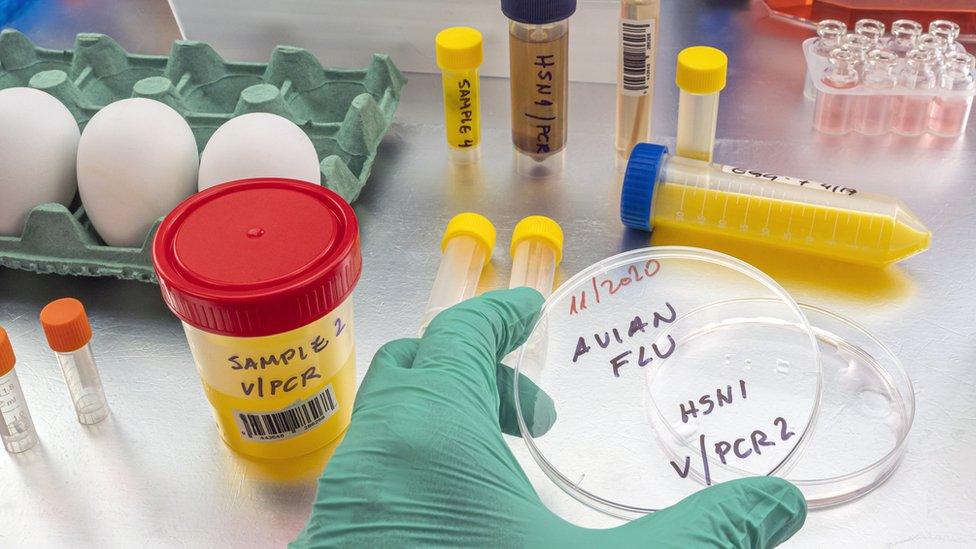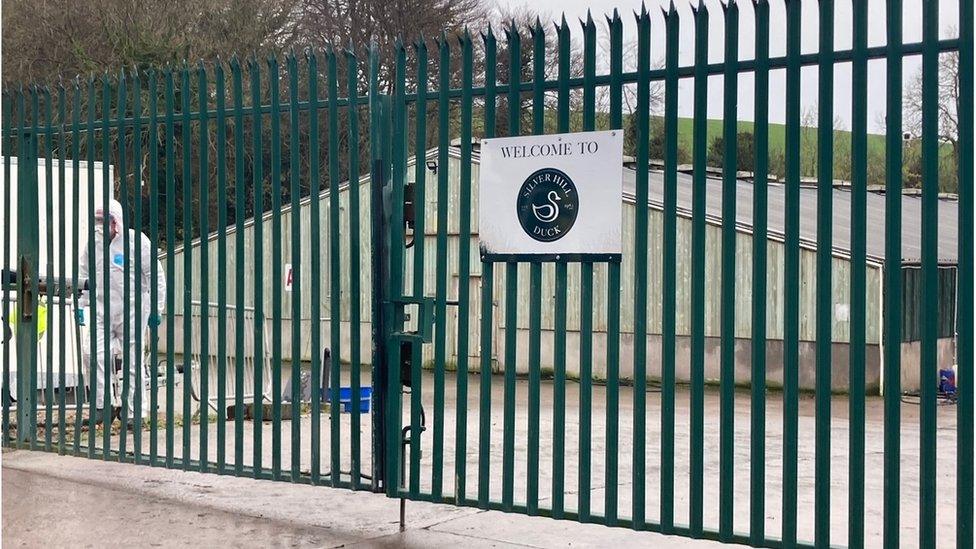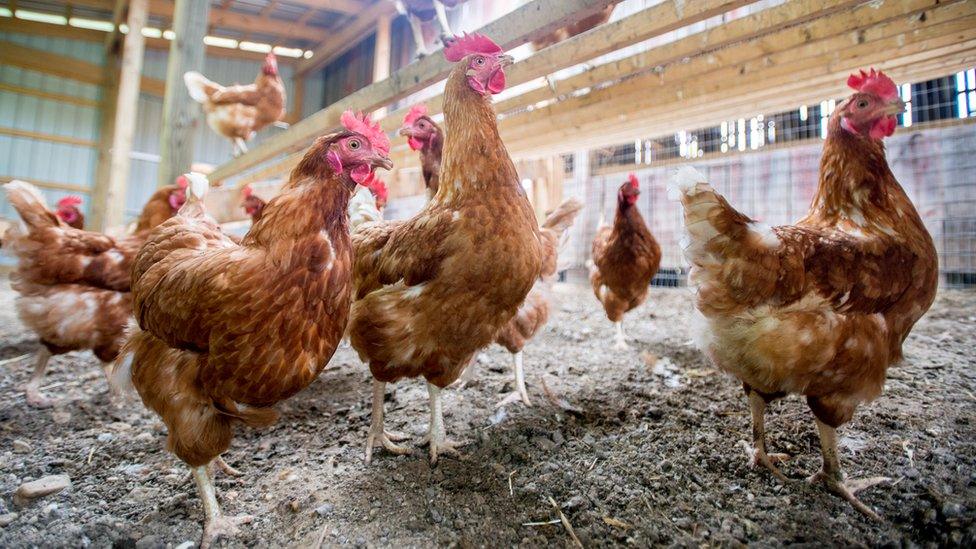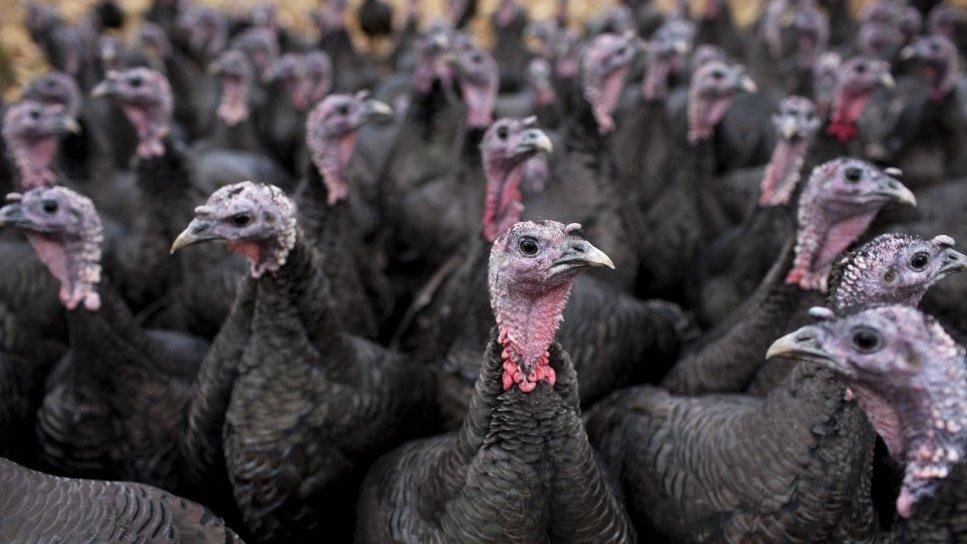Broughshane: Hobby keeper's birds culled amid bird flu fears
- Published

Further tests are being carried out to diagnose definitively the strain of the virus
A second suspect case of bird flu has been identified in Northern Ireland, this time in Broughshane in County Antrim.
The Department of Agriculture says that unlike the first case, in a large commercial flock, this was detected in a small hobby flock of about 30 birds.
The Chief Veterinary Officer Dr Robert Huey has said this shows how vulnerable all flocks are.
He has appealed for owners to strictly adhere to biosecurity measures.
The small flock will now be culled.
A temporary control zone is in place in Broughshane to try to prevent any spread.
The samples are being examined at the National Laboratory to definitively diagnose the strain of the virus.
If the highly pathogenic avian influenza H5N1 virus is detected, the temporary control zone will be converted into a 3km protection zone and a 10km surveillance zone, with strict controls on the movement of birds in and out of the zones.

One small flock of 1,200 birds on the Aughnacloy site was affected but the whole site had to be cleared
The Broughshane incident followed another suspected outbreak of avian flu at duck farm in County Tyrone.
Departmental officials have spent the day at a Silver Hill Duck farm in Aughnacloy, where more than 20,000 birds are being culled after a suspect case was identified in one flock on the site.
'Upsetting experience'
The birds in Broughshane are a mixed species flock, kept in a back yard - some considered family pets.
"There is no doubt this is an extremely difficult and upsetting experience for both flock keepers, and we do not want this to affect anyone else or to have to cull any more birds," said Dr Huey.
"I am urging commercial keepers of large flocks, as well as those with even just one pet bird, to strictly adhere to the biosecurity measures in place. The measures are there to first and foremost protect your flocks, but also to protect your business and to protect you from the devastation of having your flock culled."
Experts say there is little risk to human health from the virus, but anyone who finds a dead wild bird (gulls, waders, swans, geese, birds of prey) should not handle it, but report it to the Departmental helpline on 0300 200 7840.
Related topics
- Published1 December 2021

- Published22 November 2021
